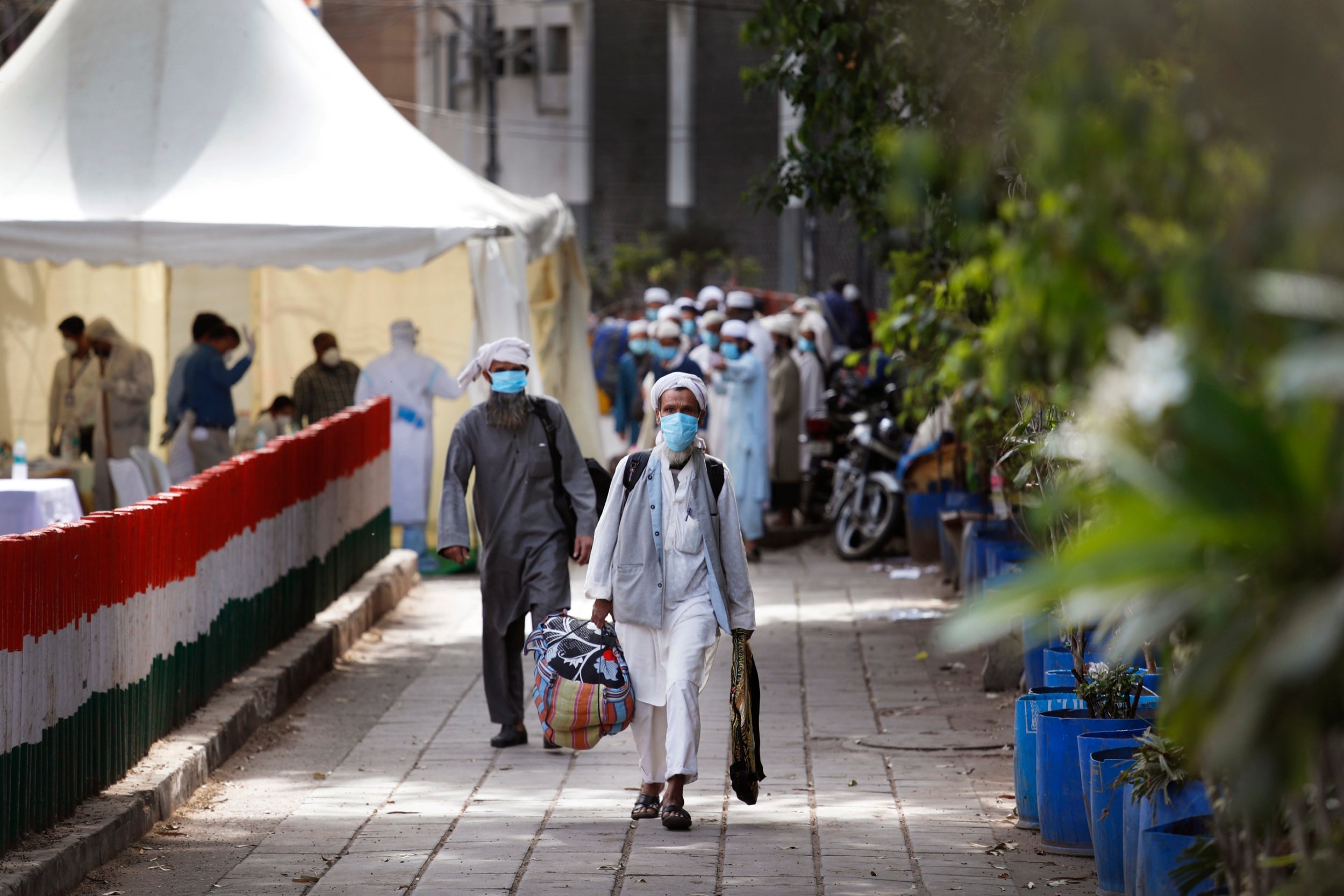Foreign Muslims ‘scapegoated’ over Covid spread in India walk free as court throws out charges
Police had initially booked 952 foreign nationals for defying Covid-19 related guidelines; over 900 of them had pleaded guilty as a part of a plea bargain

Your support helps us to tell the story
From reproductive rights to climate change to Big Tech, The Independent is on the ground when the story is developing. Whether it's investigating the financials of Elon Musk's pro-Trump PAC or producing our latest documentary, 'The A Word', which shines a light on the American women fighting for reproductive rights, we know how important it is to parse out the facts from the messaging.
At such a critical moment in US history, we need reporters on the ground. Your donation allows us to keep sending journalists to speak to both sides of the story.
The Independent is trusted by Americans across the entire political spectrum. And unlike many other quality news outlets, we choose not to lock Americans out of our reporting and analysis with paywalls. We believe quality journalism should be available to everyone, paid for by those who can afford it.
Your support makes all the difference.A court in India has acquitted 36 foreign nationals who were charged by the police for defying Covid-19-related guidelines in the country to attend a Muslim missionary group’s congregation.
The event held by Tablighi Jamaat in Delhi in early March involved 9,000 attendants from countries around the world, and was quickly dubbed India’s first superspreader event by the media and some politicians.
The Indian government connected more than a thousand cases to the congregation days before a national lockdown was called, at a time when widespread testing was not common and the authorities denied community transmission was taking place.
The focus on the event sparked a wave of Islamophobia, hate speech and crimes against Muslims, with relentless social media abuse included the use of hashtags like #CoronaJihad. TV news channels like ABP Live called members of the Jamaat “manav bomb” or human bomb, a sentiment echoed by BJP leaders, including former Maharashtra chief minister Devendra Fadnavis.
According to Time magazine, tweets with the hashtag #CoronaJihad appeared nearly 300,000 times and were potentially seen by 165 million people.
According to court records, 952 foreigners were accused of violating Covid guidelines by Delhi Police in relation to the Tablighi event. Over 900 of them had pleaded guilty as a part of a plea bargain as they did not want to stay back in India to face trial and wanted to be reunited with their families.
The 36 are among 44 foreigners who chose to stand trial on charges of violating visa rules and Covid regulations — eight were discharged in August by the court after it found that there was no “prima facie evidence” against them.
Acquitting the remaining 36 foreign nationals, who hailed from countries including the UK, the US, Russia, France, Sudan, Tunisia, Sri Lanka, Tanzania, Thailand, Kazakhstan and Indonesia, the court on Tuesday observed that the prosecution failed to “prove the presence of the accused inside the Nizamuddin Markaz premises” (where the event was held) from 12 March to 1 April.
The judge also criticised the police for apparent contradictions in statements made by witnesses, while acknowledging the probability of the plea by some of the accused that “none of them was present at Markaz during the relevant period and they had been picked up from different places so as to maliciously prosecute them upon directions from the Ministry of Home Affairs..,” reported the Indian Express.
The court said that the there was “not even an iota” of evidence to prove that public orders banning gatherings were published or available to anyone residing in the Nizamuddin Markaz.
It also pulled up the station house officer of the local police station to the event, saying that he was aware of the actual number of persons gathered at the Markaz from the beginning of the event yet failed to take any timely measures to ensure their dispersal, despite being aware of the government guidelines.
This is not the first time that an Indian court has pulled up the police and authorities for making the Muslim pilgrims into a “scapegoat” for the spread of coronavirus. In August, the Bombay High Court said: “A political government tries to find the scapegoat when there is pandemic or calamity and the circumstances show that there is the probability that these foreigners were chosen to make them scapegoats,” as it quashed charges against the foreign nationals in a case related to the Delhi congregation.



Join our commenting forum
Join thought-provoking conversations, follow other Independent readers and see their replies
Comments